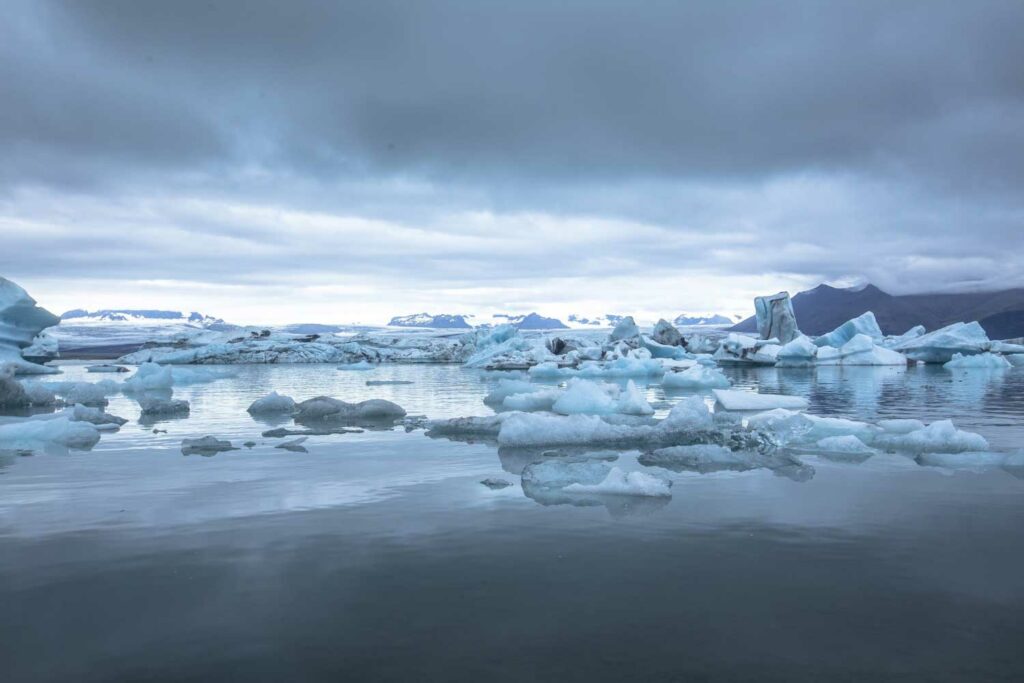Welcome to DU!
The truly grassroots left-of-center political community where regular people, not algorithms, drive the discussions and set the standards.
Join the community:
Create a free account
Support DU (and get rid of ads!):
Become a Star Member
Latest Breaking News
General Discussion
The DU Lounge
All Forums
Issue Forums
Culture Forums
Alliance Forums
Region Forums
Support Forums
Help & Search
Environment & Energy
Related: About this forumFirst ice-free day in the Arctic could occur decades earlier than previously thought
Arctic could see summer days with practically no sea ice.
By
Pranjal Mehar
6 Mar, 2024

The disappearance of Arctic sea ice that has been observed is a sign of human-caused climate change. With further warming, these declines are expected to continue and eventually result in an Arctic devoid of ice.
In a new study, scientists at CU Boulder have synthesized knowledge regarding the timing and regional variability of an ice-free Arctic. According to the survey, the Arctic might be “ice-free” in ten years.
It is anticipated that by the middle of this century, September—when sea ice coverage in the Arctic is at its lowest—will be utterly free of floating ice in the Arctic. Depending on greenhouse gas emissions, the amount of time without ice could increase to several months annually by the end of the century. In the worst-case scenario, when emissions keep on their current pace, the northernmost part of the earth might not have any ice during some winter months.
However, when scientists refer to the Arctic as “ice-free,” they do not imply that there is no ice in the ocean. As an alternative, they describe it as having ice covering less than one million square kilometers, or 386,000 square miles. To put that in context, the area’s minimal amount of ice cover during the 1980s was less than 20%. In contrast, the Arctic Ocean’s sea ice area has historically decreased to about 3.3 million square kilometers in September.
In this study, scientists aimed to assess the body of literature already available on sea ice projections. Additionally, they examined sea ice coverage data from computerized climate models to speculate on future potential daily changes to the Arctic.
More:
https://www.techexplorist.com/first-ice-free-day-arctic-occur-decades-earlier-previously/81740/
InfoView thread info, including edit history
TrashPut this thread in your Trash Can (My DU » Trash Can)
BookmarkAdd this thread to your Bookmarks (My DU » Bookmarks)
3 replies, 438 views
ShareGet links to this post and/or share on social media
AlertAlert this post for a rule violation
PowersThere are no powers you can use on this post
EditCannot edit other people's posts
ReplyReply to this post
EditCannot edit other people's posts
Rec (10)
ReplyReply to this post
3 replies
 = new reply since forum marked as read
Highlight:
NoneDon't highlight anything
5 newestHighlight 5 most recent replies
= new reply since forum marked as read
Highlight:
NoneDon't highlight anything
5 newestHighlight 5 most recent replies
First ice-free day in the Arctic could occur decades earlier than previously thought (Original Post)
Judi Lynn
Mar 16
OP
Sure would help if the release of methane by oil companies could be stopped.
Hermit-The-Prog
Mar 16
#2
Think. Again.
(8,129 posts)1. Thanks for posting this...
...It seems every update on every prediction of the climate change effects we are causing always say it's happening faster than original predictions.
I sometimes think the scientists are trying to gently tell us information that would not be believed if they told us the true enormity of the situation.
Hermit-The-Prog
(33,346 posts)2. Sure would help if the release of methane by oil companies could be stopped.
CANADIANBEAVER69
(339 posts)3. Natures cost is high
I can't stop thinking about all the animals and species mankind has caused harm to with our reckless continued rape of our world.